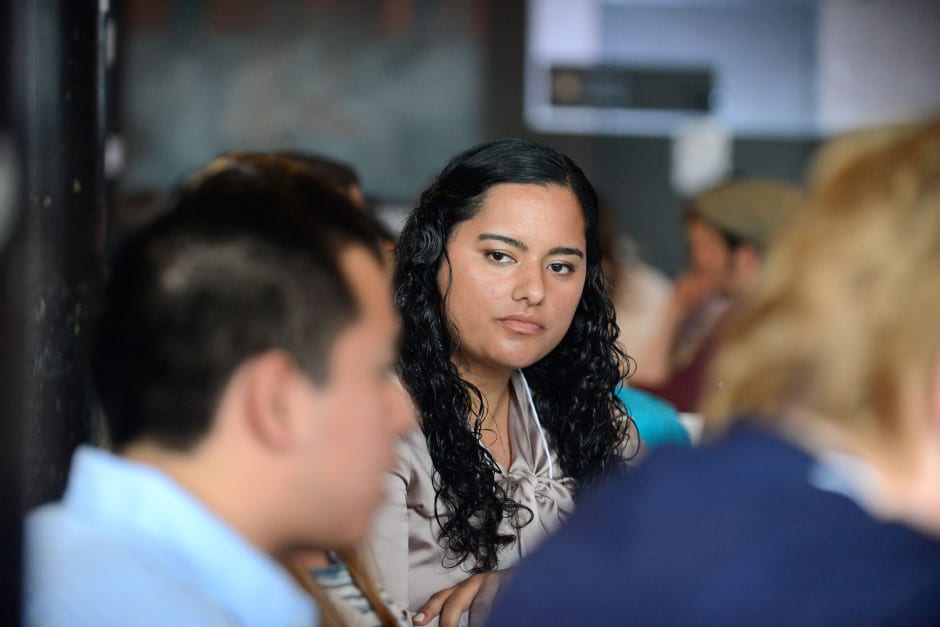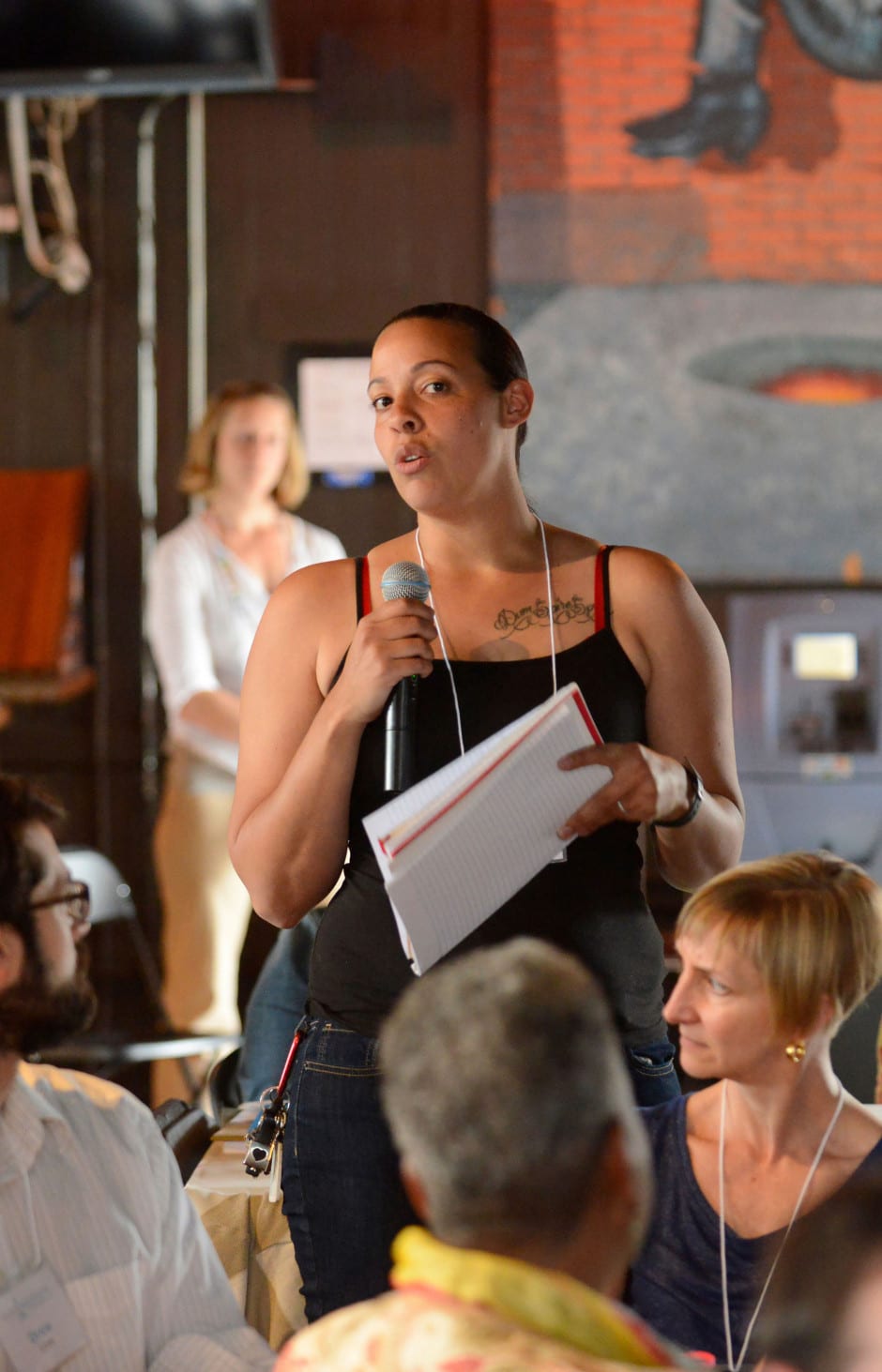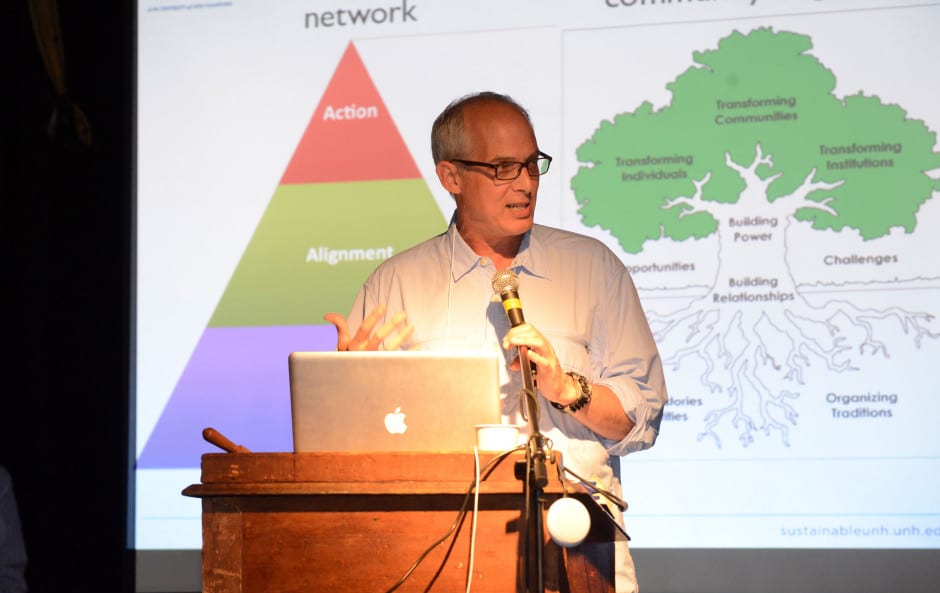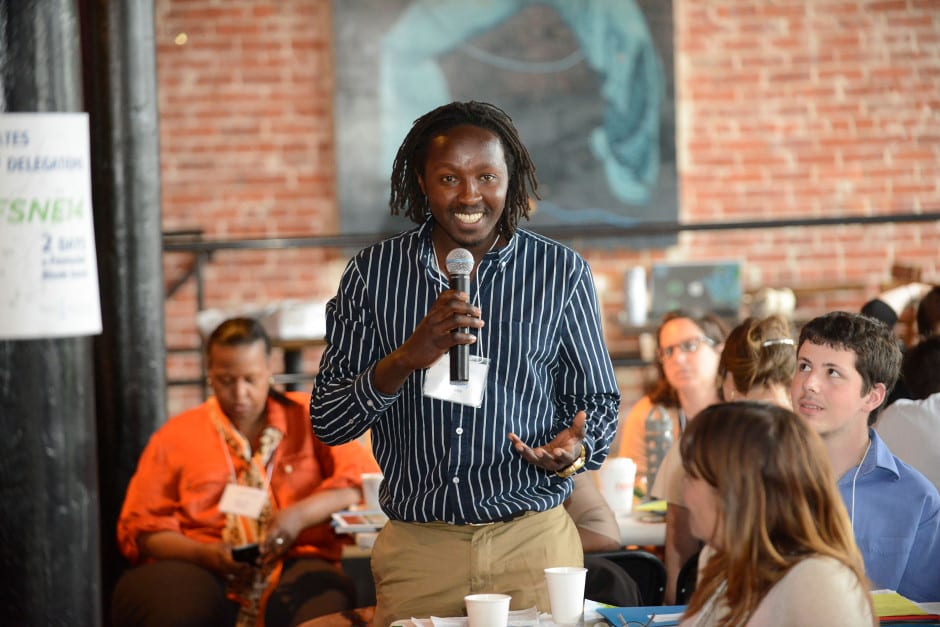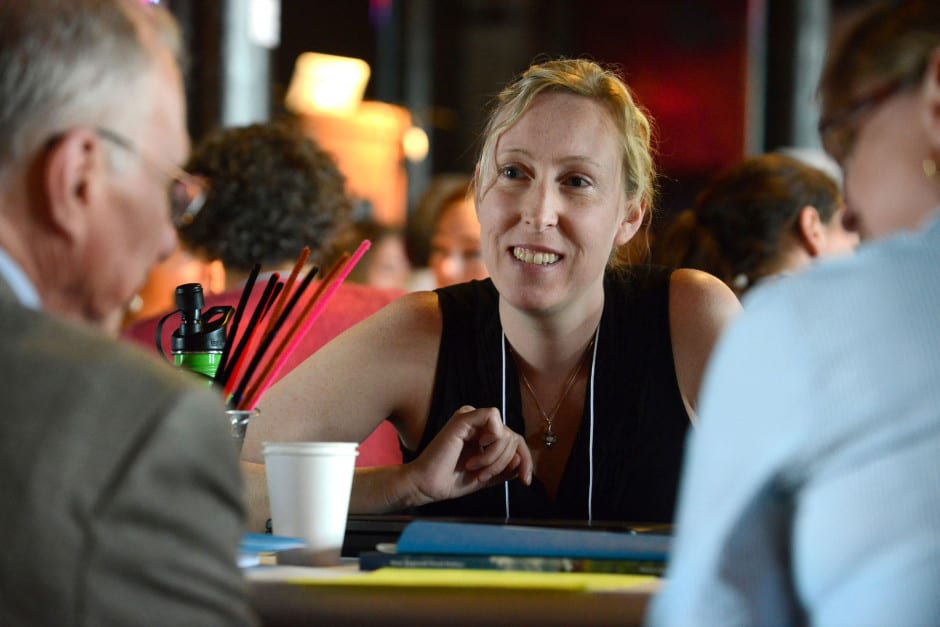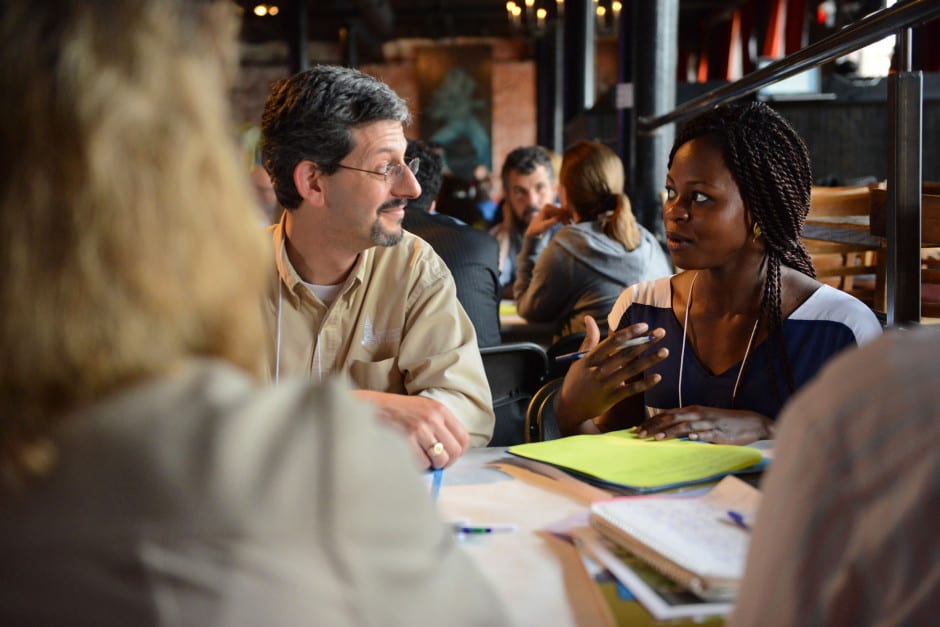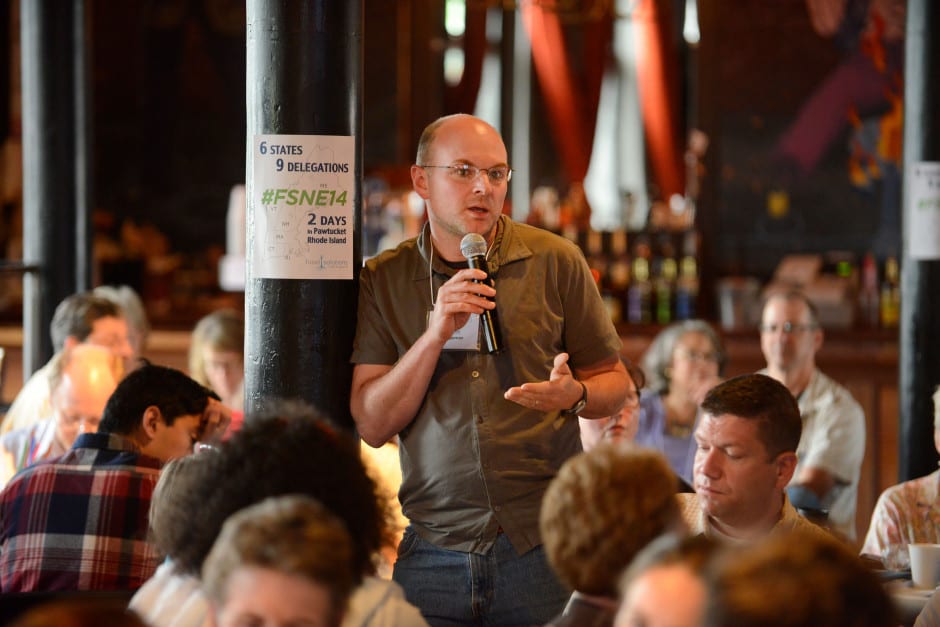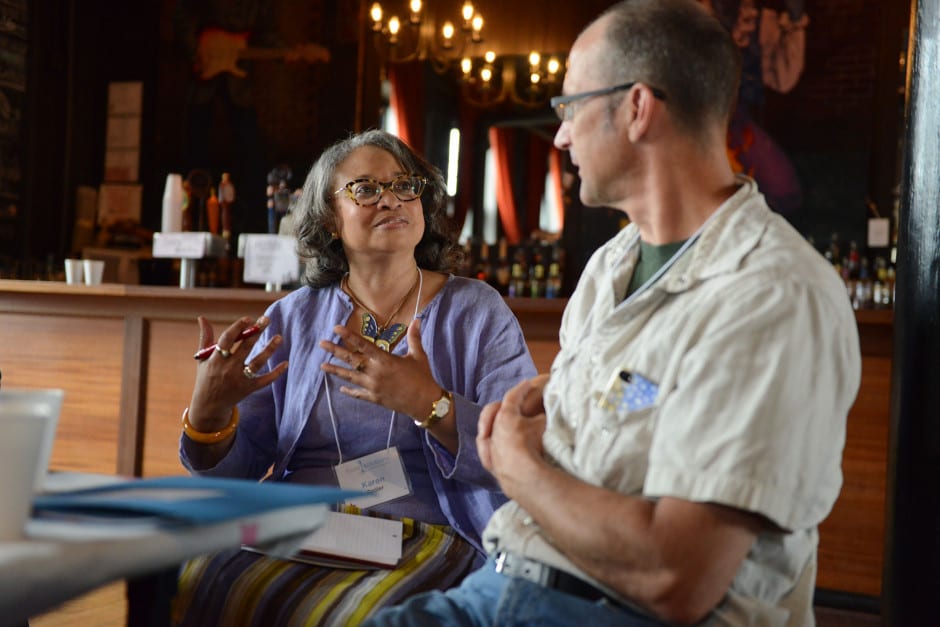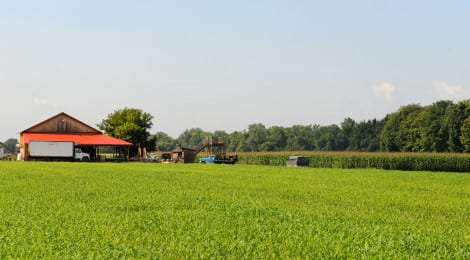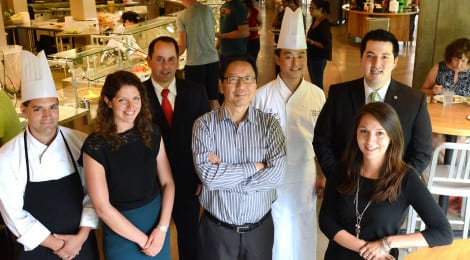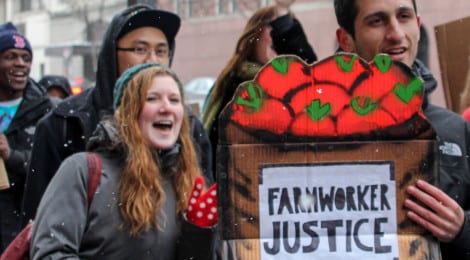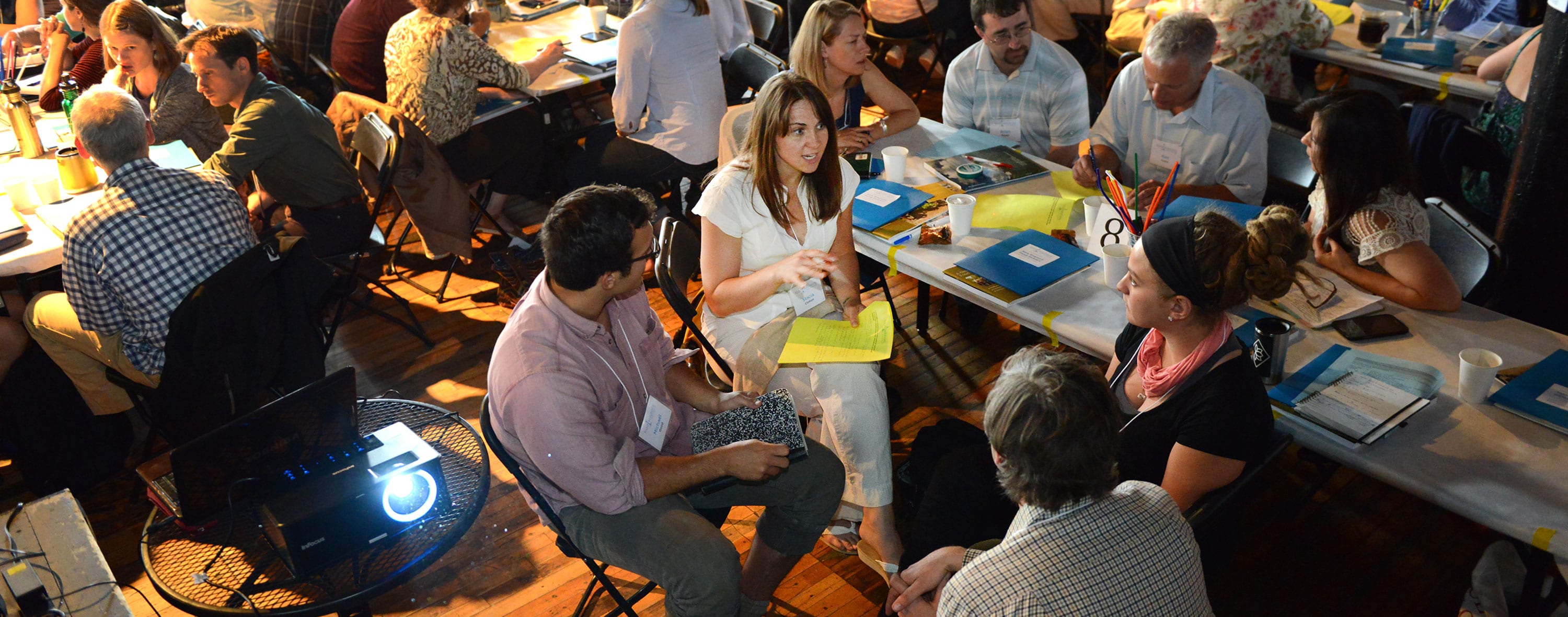
Grantee Profile
Food Solutions New England
New England leads every region of the nation in the number of farmers markets, Community Supported Agriculture programs (CSAs) and Farm-to-School programs per capita. The region has emerged at the forefront of a movement to create a more sustainable, resilient way of providing people with food.
Even so, the movement is still very much in an early stage. Local food accounts for only a small fraction of New England’s total food expenditures. While early signs are promising, a successful transition to a better food system is by no means inevitable. It will require enormous vision, commitment and collaboration by the many diverse people and organizations across the region. That is where Food Solutions New England comes in.
FSNE, an initiative housed at the University of New Hampshire Sustainability Institute (UNHSI), was created in 2010 with the mission of advancing a more sustainable and resilient food system in New England. Despite the developing momentum to increase the production and consumption of New England grown food, the FSNE staff noticed that stakeholders in the region remained largely unconnected to one another.
“There was a recognition or a realization of the fragmentation of the food system,” says Elisabeth Farrell, program manager at the UNHSI and network coordinator for FSNE. “We wanted to convene and bring together all of the various parts so that they can be in conversation and learn from one another and build upon each other’s efforts.”
In 2011, FSNE organized the first New England Food Summit to convene stakeholders from across the food system in a conversation around how New England might work together regionally to advance a more sustainable food system. At that summit, Brian Donahue, associate professor at Brandeis University, presented the kernel of what is now A New England Food Vision, a vision for the region that imagines that at least 50 percent of the food consumed in New England will be produced in New England by 2060.
FSNE holds annual New England Food Summits so people could come together regularly, share their progress, and build an ongoing network.
“If we’re going to change a system as complex as the food system, we need a network; it takes people — a lot of people. It takes a collective effort to make real change in that system,” says Elisabeth.
FSNE decided upon a delegation model for their summits, meaning that each of the six New England states selects delegates to represent their respective state. There have also been delegations for funders and young professionals along with the six state entities and other issue-specific delegations may be formed in the future.
Annie Steeves, a recent graduate of the University of New Hampshire, attended the summit as a member of the Young Professionals Delegation.
“I wanted to go to the summit because I had been involved with food advocacy work at UNH”, says Annie, “so I was really excited to connect with others throughout New England who are working toward similar goals.”
The annual summit is about more than just spurring people into action, however. It also spurs conversations about what sort of action should take place. At each of the first three summits, the Vision that FSNE recently published was amended and shaped by the attendees.
“We see the Vision as a living document,” says Elisabeth.
Regularly revisiting the Vision has allowed new voices to be heard. Topics like racial equity, farmworker justice, and land access have all become stronger focal points of the Vision as a result of the summits.
“This version of the Vision is sort of the snapshot, a moment in time of where we are with this. And then we hope and want to see it evolve and grow,” says Elisabeth.
General operating support from the Kendall Foundation has strengthened FSNE’s ability to connect people and spread the Vision across the region.
Maggie Donin of Vermont attended the most recent summit because she wanted to vocalize the critical issue of farm viability. She works for the Intervale Center in Burlington, VT, a nonprofit committed to increasing farm viability in New England.
“I see the summit as a great opportunity to connect with other people who work with beginning farmers and learn from their experiences,” Maggie says.
While the summit is valuable to different people for different reasons, the attendees leave with a strong sense of regional comradery. Comradery on a complex issue such as the New England food system is important, and it would not be possible without a vision uniting people from diverse backgrounds and a network that brings them together.
“People can use this Vision as a point of entry into discussion about what can we do in this community, in this state, in this region,” Elisabeth says, “to make a more sustainable, more equitable food system for ourselves and for our region.”
Learn more: Food Solutions New England
If we’re going to change a system as complex as the food system, we need a network; it takes people -- a lot of people. It takes a collective effort to make real change in that system.
